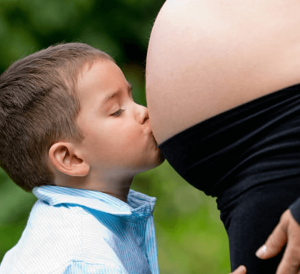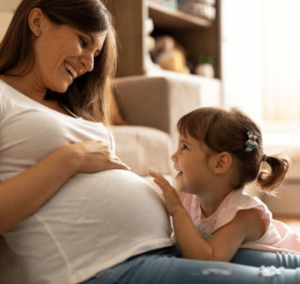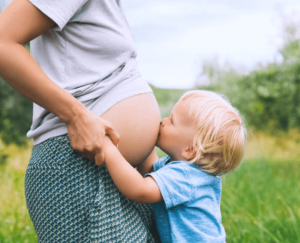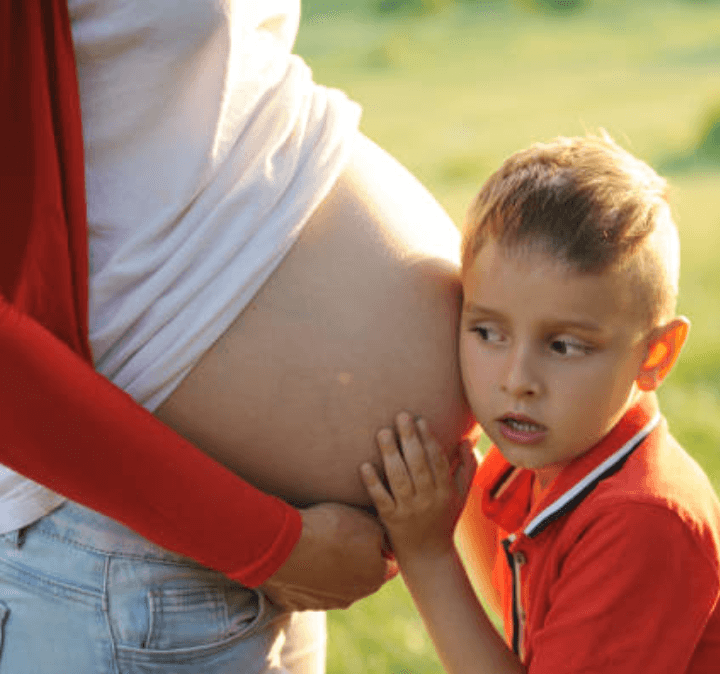If you are trying to conceive or suspect that you might be pregnant, you may wonder if there is any truth to the claim that babies can sense pregnancy before their mothers even realize they are pregnant. So, can babies sense pregnancy before you know? The answer is not entirely clear, but in this article, we will investigate this claim and explore the different ways in which babies may be able to detect pregnancy before their mothers do.

The claim that babies can sense pregnancy before their mothers know is an intriguing topic because it suggests that babies may have an innate ability to sense changes in their environment, including changes in their mother’s body. In this article, we will explore the different ways in which babies may be able to detect pregnancy before their mothers do.
Can Babies Sense Pregnancy Before You Know
- Babies may sense changes in their mother’s behavior and routine before the mother knows she’s pregnant.
- Changes in a pregnant woman’s body that affect her sense of smell may be detected by the baby.
- Scientific evidence is limited, but personal experiences suggest that babies may know their mother is pregnant before she does.
Baby Senses
Babies are born with five senses: sight, smell, taste, touch, and hearing. However, their senses are not fully developed at birth and continue to develop throughout infancy and childhood.

Babies’ heightened sense of smell can help them detect changes in their environment, including changes in their mother’s body. This is one of the ways in which babies may be able to sense pregnancy before their mothers know.
[wptb id=317]
Changes in Behavior
Studies have suggested that babies can sense changes in their mother’s behavior and routine before the mother knows she’s pregnant. For example, a mother may start eating differently or experiencing nausea and fatigue before she realizes she’s pregnant. These changes in behavior may be subtle, but babies may be able to pick up on them.

Babies are highly attuned to their mother’s emotional state and can sense when she’s stressed or anxious. This sensitivity to their mother’s emotional state can also help them detect changes in behavior that may be related to pregnancy.
Sense of Smell
Changes in a pregnant woman’s body can affect her sense of smell. Some women report experiencing a heightened sense of smell during pregnancy, while others report a decreased sense of smell. The change in smell may be due to hormonal changes in the body.
Babies may be able to detect changes in their mother’s scent, which can indicate pregnancy.
Movement and Sounds
Babies move and make sounds in the womb, and mothers can feel and hear these movements and sounds. These movements and sounds can be a way for babies to communicate with their mother and indicate their awareness of their surroundings.
Babies may respond to external stimuli, such as music or a bright light, which suggests that they are aware of their environment. This awareness may extend to changes in their mother’s body, such as the presence of a growing fetus.
Scientific Evidence
Several scientific studies have explored the possibility of babies sensing pregnancy before their mothers know. One study found that babies as young as six weeks old showed a preference for looking at pictures of pregnant women compared to pictures of non-pregnant women. Another study found that babies were more likely to turn their heads towards the sound of a baby crying if their mothers were pregnant, suggesting that they could recognize the sound of a baby in utero.

While these studies provide some evidence that babies may be able to sense pregnancy before their mothers know, they are limited in scope and do not definitively prove the claim.
Read more: >> Can babies see angels
Can Babies Sense Pregnancy Before You Know?
According to several sources, such as MOM News Daily, Main Street Mom, and Focus on Your Child, there is no scientific evidence to support the idea that babies can sense pregnancy before the mother knows.
Babies are still developing their senses, and their ability to sense pregnancy cues is limited. It is possible that a baby may respond to a change in the mother’s mood or behavior, but this is not necessarily a sign that the baby knows the mother is pregnant.
Can Babies Sense Early Pregnancy?
During the early stages of pregnancy, a woman’s body undergoes various changes, and hormonal fluctuations. These changes can affect a woman’s mood, behavior, and even scent. It is possible that babies can pick up on these changes and respond accordingly.
According to a source, babies are still developing their senses during the early stages of pregnancy, making it unlikely that they can sense pregnancy cues.
Can Other Babies Sense Pregnancy?
While there is no scientific evidence that babies can sense pregnancy, some parents believe that babies can pick up on subtle changes in their mother’s behavior or body. However, every baby is different, and what one baby perceives as a change may not be noticeable to another.
Some parents report that their baby becomes more clingy or fussy when they are pregnant, while others say that their baby becomes more independent. Some babies may show no change in behavior at all.
It is also possible that any changes in a baby’s behavior are due to other factors, such as teething or a growth spurt. It is crucial to consider all possible explanations before attributing any changes to a baby sensing pregnancy.
Read More: >> How to put a baby to sleep quickly in 40 seconds
How Can Babies Tell If You’re Pregnant?
Babies and toddlers may have a sixth sense that allows them to know when their mother is pregnant. Although there is no scientific evidence to support this claim, many parents have reported that their children seemed to know that they were pregnant before they did. These are three possible ways that babies can sense pregnancy, Changes in scent, changes in behavior and changes in body.
Personal Experiences
Many mothers have reported their babies seeming to know they were pregnant before they did. These personal experiences are anecdotal and cannot be scientifically proven. However, they suggest that there may be some truth to the claim that babies can sense pregnancy before their mothers know.
Possible explanations for these experiences include changes in the mother’s behavior or scent that the baby is able to detect. It’s also possible that the mother’s intuition about being pregnant is reflected in her behavior and interactions with her baby, which the baby is able to pick up on.
Other Questions
It’s unclear whether babies can sense pregnancy in other people besides their mothers or if pets can sense pregnancy before their owners know. However, babies are highly attuned to changes in their environment and may be able to sense other changes before adults do.
Frequently Asked Questions
[sp_easyaccordion id=”321″]
Conclusion
In conclusion, while there is some evidence to suggest that babies may be able to sense pregnancy before their mothers know, the current research is limited and inconclusive. It’s important to remember that the mother-baby bond is important regardless of whether the baby can sense pregnancy beforehand.
The topic, can babies sense pregnancy before you know is one that is still shrouded in mystery. However, it’s clear that babies are highly sensitive to their environment and are capable of detecting subtle changes that adults may miss.
SOURCES
• Newborn-Senses. Chop.edu. Accessed September 13, 2023.
• Your Newborn’s Hearing, Vision, and Other Senses. Kidshealth.org. Accessed September 13, 2023
